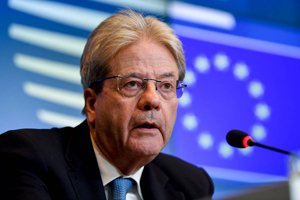Economy and finance ministers review impact of Ukraine war on European economies

date: 13/04/2022
See also: Eurogroup, 4 April 2022
In preparation for the upcoming spring meetings of the World Bank Group and the IMF, ministers also reviewed global economic developments, risks and policy challenges. Based on input from the ECB and the Commission, ministers discussed privacy considerations related to a digital euro. They also held a thematic discussion on housing market developments, focused on housing affordability. Lastly, the Eurogroup was informed about European banking supervision priorities and the broader financial regulation agenda in the context of the invasion of Ukraine by Russia, as well as recent activities of the Single Resolution Board. During an Economic and Financial Affairs Council configuration (ECOFIN) meeting on 5 April, EU economy and finance ministers discussed the implementation of the sanctions imposed by the EU on Russia, and welcomed Serhii Marchenko, Minister for Finance of Ukraine, to part of the meeting by videoconference. They also discussed the impact of the war in Ukraine on European economies, based on a new assessment by the European Commission. The ECOFIN adopted conclusions on the strategic autonomy of the European economy, discussed implementation of the 2021 Council conclusions on strengthening the European financial architecture, and reviewed work on the transposition into EU law of the global agreement that multinationals pay not less than 15% tax anywhere in the world. The ECOFIN also prepared for the IMF and G20 spring meetings, reviewed the status of financial services legislation, adopted updated Value Added Tax rules and a reinforced mandate for the EU’s Fundamental Rights Agency, and authorised Member States to sign the second additional protocol to the convention on cybercrime (Budapest convention).
